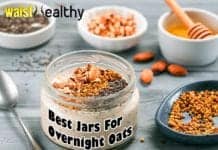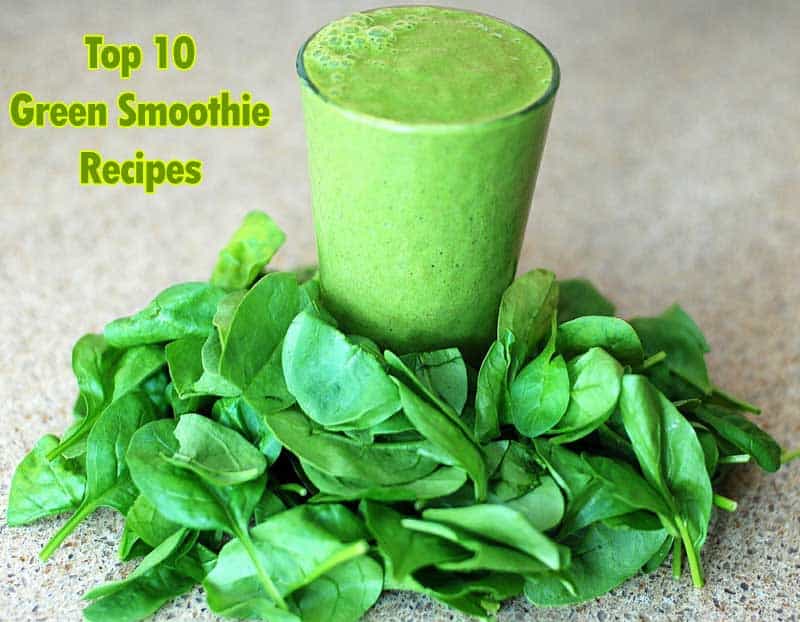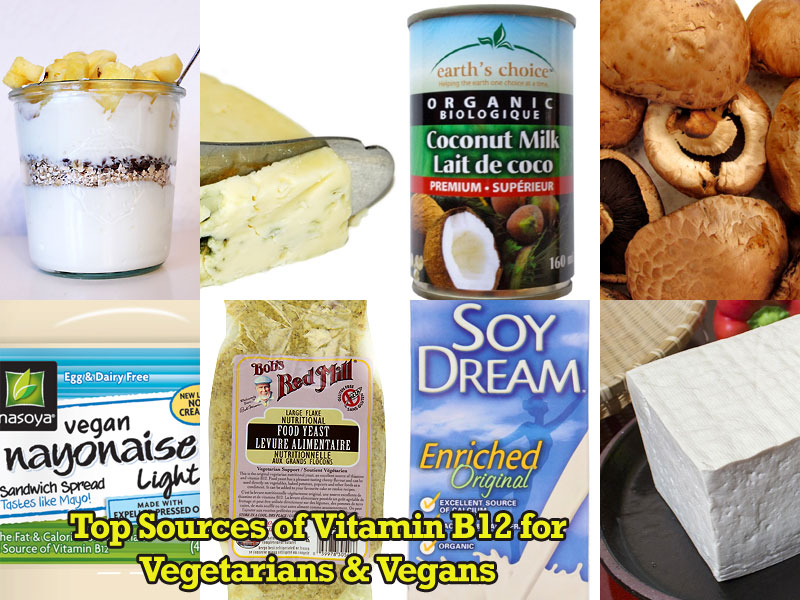
Vitamin B12 Sources: A human body needs vitamin to thrive. Vitamin B12, a crucial member of the Vitamin B family needs a special mention here. People who adhere to a strict vegetarian diet, pregnant ladies, grey-haired people, avid drinkers and smokers are mostly targeted with a deficiency of Vitamin B12.
This has a gross impact on the overall health of a person. Symptoms of fatigue are the first to put up with. Later, a series of illness like anemia, depression, loss of appetite, asthma, a cut-back in sperm count, soreness around the mouth, loss of memory and problems of vision starts springing up. So, there is a pressing need of Vitamin B12 to keep up with the best of health in its finest fettle.
Wondering how is Vitamin B12 that important?
Well, Vitamin B12, also known as Cobalamin is a water-soluble variant of the 8-member Vitamin family. It keeps the nerves and the red blood cells well-maintained but also contributes largely to a host of other processes in the body. This is one nutrient that converts fatigue and lethargy.
Vitamin B12 is also known to balance and control cholesterol levels in the bloodstream. It wards off bad cholesterol in the body and prevents massive coronary disorders. The nutrient has a potential to regulate nervous system, thereby slackening chances of depression, constant shrinking of brains and of course stress.
It is also a natural antidote against the very gruesome Big C. Well, these do not sum up the role of Vitamin B12 here. From heart to hair, skin to nails, Vitamin B12 contributes to everything. Since the nutrient is related to cell growth, reproduction and development, it encourages renewal of skin and growing of hairs and nails.
In a nutshell, there is no way a body can flourish well if there is a dearth of Vitamin B12 in the bloodstream. This vitamin is richly found in meat, fish and eggs.
As a result, vegetarians find it challenging to munch upon foods that are replete with this much-needed nutrient. Don’t worry!
Here’s a special list of Vitamin B12 sources for vegetarians: Let’s begin:
Best Vitamin B12 Sources
Cheese
 Other than poultry, meat and seafood, cheese too contains optimum ratios of Vitamin B12. Particularly, it is cottage cheese that is the best source of Vitamin B12. As per studies, a whole cup of cottage cheese contains 1.02-1.42mcg of Vitamin B12. On the other hand, rest of the variants like Swiss cheese, ricotta and mozzarella contains 0.95, 0.84 and mcg of vitamin B12 per serving.
Other than poultry, meat and seafood, cheese too contains optimum ratios of Vitamin B12. Particularly, it is cottage cheese that is the best source of Vitamin B12. As per studies, a whole cup of cottage cheese contains 1.02-1.42mcg of Vitamin B12. On the other hand, rest of the variants like Swiss cheese, ricotta and mozzarella contains 0.95, 0.84 and mcg of vitamin B12 per serving.
Reference: LivingStrong.com
Yogurt
 Vitamin B12 sources for vegetarians are hard to find since it is mostly present in animal products. However, yogurt is a great source of the much talked about nutrient of Vitamin B12. This is where it should noted that not all types of yogurts cater rich doses of Vitamin B12. Sticking to a plain low-fat yogurt can help you rack up 1.3 micrograms of Vitamin B12 in each serving (precisely an 8-ounce serving). This is pretty big as it contributes 53% of the total Vitamin B12 recommended for consumption on a regular basis. In a nutshell, yogurt is an excellent source of the important Vitamin B12.
Vitamin B12 sources for vegetarians are hard to find since it is mostly present in animal products. However, yogurt is a great source of the much talked about nutrient of Vitamin B12. This is where it should noted that not all types of yogurts cater rich doses of Vitamin B12. Sticking to a plain low-fat yogurt can help you rack up 1.3 micrograms of Vitamin B12 in each serving (precisely an 8-ounce serving). This is pretty big as it contributes 53% of the total Vitamin B12 recommended for consumption on a regular basis. In a nutshell, yogurt is an excellent source of the important Vitamin B12.
Reference: healthyeating.sfgate.com
Coconut Milk
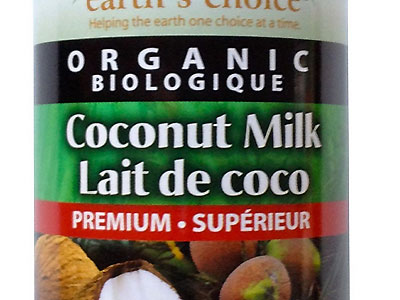 Gone are the days when coconut milk was just used in Thai curries and cream cakes. Today, coconut milk is used in an array of recipes that include breakfast platters, desserts and of-course meal items. The best part – coconut milk is a very healthy option, sometimes more befitting than soy milk. Vitamin B12 sources for vegetarians are incomplete without the mention of coconut milk. In-fact, this item contains the remaining 7 members of the Vitamin B family too. Other nutrients found in coconut milk are iron, calcium and minerals. There is a special type of fat found in coconut milk. It is called the medium-chained triglycerides. This is again very aiding since MCTs have natural anti-microbial properties.
Gone are the days when coconut milk was just used in Thai curries and cream cakes. Today, coconut milk is used in an array of recipes that include breakfast platters, desserts and of-course meal items. The best part – coconut milk is a very healthy option, sometimes more befitting than soy milk. Vitamin B12 sources for vegetarians are incomplete without the mention of coconut milk. In-fact, this item contains the remaining 7 members of the Vitamin B family too. Other nutrients found in coconut milk are iron, calcium and minerals. There is a special type of fat found in coconut milk. It is called the medium-chained triglycerides. This is again very aiding since MCTs have natural anti-microbial properties.
Reference: lunchboxbunch.com
Nayonaise
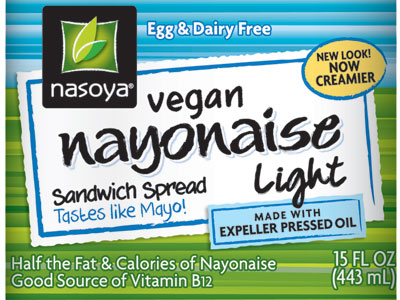 Who on earth does not love mayonnaise? It’s scrumptious and absolutely heavenly in taste, isn’t it? Well, for the vegetarians, go for Nayonaise instead. It is a nice alternative to the amazing mayonnaise and is fortified with additional portions of Vitamin B12. This product is both egg-free and dairy-free. So chances of gaining cholesterol on consuming excess quantities of Nayonaise are a sure ‘NO’! The spread is delicious to eat and carries just 20 calories per serving. It is also an excellent source of Vitamin B12. So, there’s no way you can miss eating Nayonaise when looking for rich shots of Vitamin B12.
Who on earth does not love mayonnaise? It’s scrumptious and absolutely heavenly in taste, isn’t it? Well, for the vegetarians, go for Nayonaise instead. It is a nice alternative to the amazing mayonnaise and is fortified with additional portions of Vitamin B12. This product is both egg-free and dairy-free. So chances of gaining cholesterol on consuming excess quantities of Nayonaise are a sure ‘NO’! The spread is delicious to eat and carries just 20 calories per serving. It is also an excellent source of Vitamin B12. So, there’s no way you can miss eating Nayonaise when looking for rich shots of Vitamin B12.
Reference: nasoya.com
Soy Milk
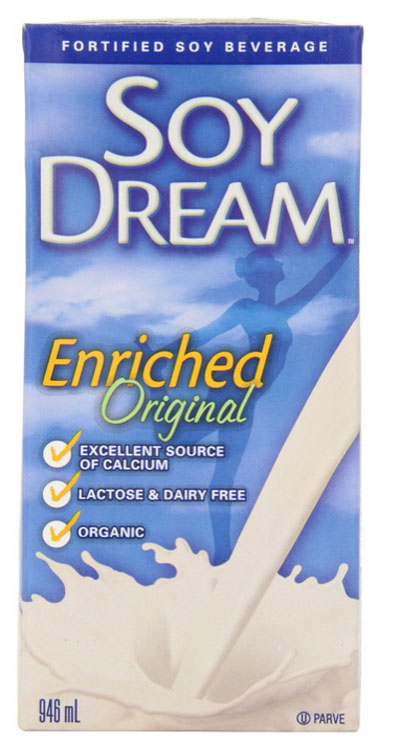 What is soy milk in reality? To put it in a nutshell, it is an emulsion of oil, water and protein. The protein is extracted from soya beans that are plant products soaked in water. Here, it is worth mentioning that organically grown plants contain less amounts of Vitamin B12. It is only after these items are fortified with additional nutrients, the same item converts into a rich source of Vitamin B12. Since clinical deficiency of Vitamin B12 can cause a destructive impact on nerve cells and also lead to serious anemia, it is imperative to take-in nutrients, especially Vitamin B12 on a daily basis. Now the good news – A regular cup of soy milk caters to 50% of your recommended intake of Vitamin B12.
What is soy milk in reality? To put it in a nutshell, it is an emulsion of oil, water and protein. The protein is extracted from soya beans that are plant products soaked in water. Here, it is worth mentioning that organically grown plants contain less amounts of Vitamin B12. It is only after these items are fortified with additional nutrients, the same item converts into a rich source of Vitamin B12. Since clinical deficiency of Vitamin B12 can cause a destructive impact on nerve cells and also lead to serious anemia, it is imperative to take-in nutrients, especially Vitamin B12 on a daily basis. Now the good news – A regular cup of soy milk caters to 50% of your recommended intake of Vitamin B12.
Reference: PopSugar.com
Nutritional Yeast
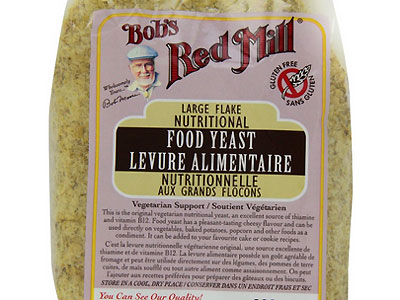 Although the name sounds quite yucky, nutritional yeast in reality is of great advantage towards good health. First, the yeast is cultured and then blended with a mix of beet molasses and sugar cane. It is then dried, powdered and packaged for use. Yeast is amazing supplement of protein and B-complex Vitamins. Usually, yeast is dominant with a very strong flavor but also shares a pungent flavor, similar to that of a cheese. This form of nutritional yeast can be sprinkled over a lot of food items and consumed on a regular basis. For example, mix the yeast powder into scrambled eggs or sprinkle it on pop-corns along-with some olive oil, salt and chili powder for a boost of flavor.
Although the name sounds quite yucky, nutritional yeast in reality is of great advantage towards good health. First, the yeast is cultured and then blended with a mix of beet molasses and sugar cane. It is then dried, powdered and packaged for use. Yeast is amazing supplement of protein and B-complex Vitamins. Usually, yeast is dominant with a very strong flavor but also shares a pungent flavor, similar to that of a cheese. This form of nutritional yeast can be sprinkled over a lot of food items and consumed on a regular basis. For example, mix the yeast powder into scrambled eggs or sprinkle it on pop-corns along-with some olive oil, salt and chili powder for a boost of flavor.
Reference: vegkitchen.com
Tofu
 People following a no-meat diet fail to meet the necessary nutritional needs of a human body. This can lead to perilous outcomes in terms of bad health and diseases. Vegetarians are suggested to consume tofu for a good dose of protein. However, tofu is a wholesome food item that contains an array of other vital nutrients. Calcium, Vitamin D, B2, B6 and B12 are namely a few. There are no preservatives found in a regular tofu. It is also gluten-free that promotes good health. Nutritious aliments like that of tofu bring down the cholesterol levels by leaps and bounds.
People following a no-meat diet fail to meet the necessary nutritional needs of a human body. This can lead to perilous outcomes in terms of bad health and diseases. Vegetarians are suggested to consume tofu for a good dose of protein. However, tofu is a wholesome food item that contains an array of other vital nutrients. Calcium, Vitamin D, B2, B6 and B12 are namely a few. There are no preservatives found in a regular tofu. It is also gluten-free that promotes good health. Nutritious aliments like that of tofu bring down the cholesterol levels by leaps and bounds.
Reference: vegetarian-meals.net
Cereals
 Breakfast is not likely a good breakfast if there are no cereals, right? A bowl of cereal is jam-packed with nutrients like calcium, carbohydrate, protein, vitamin, mineral, fat, sugar and calories. It is indeed a wonder bowl. Kick-starting a day with a bowl of cereal is best recommended. Cereals are highly fibrous too. It will your stomach fuller for a fairly long time and will also ensure a proper bowel movement. That being said, cereals like the Malt-O-Meal High Fiber Bran Flakes, Wheat Bran Flakes from Kelloggs, Oat Bran Flakes, All Bran, Soy Protein, Mueslix and plenty of other cereals are rich in Vitamin B12. These cereals are usually fortified with Vitamin B12. For best results, try teaming up your ordinary cereal breakfast with some healthy and nutritious soy milk.
Breakfast is not likely a good breakfast if there are no cereals, right? A bowl of cereal is jam-packed with nutrients like calcium, carbohydrate, protein, vitamin, mineral, fat, sugar and calories. It is indeed a wonder bowl. Kick-starting a day with a bowl of cereal is best recommended. Cereals are highly fibrous too. It will your stomach fuller for a fairly long time and will also ensure a proper bowel movement. That being said, cereals like the Malt-O-Meal High Fiber Bran Flakes, Wheat Bran Flakes from Kelloggs, Oat Bran Flakes, All Bran, Soy Protein, Mueslix and plenty of other cereals are rich in Vitamin B12. These cereals are usually fortified with Vitamin B12. For best results, try teaming up your ordinary cereal breakfast with some healthy and nutritious soy milk.
Reference: healthaliciousness.com
Mushrooms
 Mushrooms are not a very rich or potent source of Vitamin B12. Originally, a Cremini mushroom or a brown Italian mushroom contains as less as 0.1ug of Vitamin B12. However, what really marks the grades is when these mushrooms are consumed in ample amounts; it does benefit the body with a fairly decent quantity of Vitamin B12. So, the next you’ve gobbled up a full mushroom patty burger, be rest assured about your Vitamin B12 intake since that’s fulfilled.
Mushrooms are not a very rich or potent source of Vitamin B12. Originally, a Cremini mushroom or a brown Italian mushroom contains as less as 0.1ug of Vitamin B12. However, what really marks the grades is when these mushrooms are consumed in ample amounts; it does benefit the body with a fairly decent quantity of Vitamin B12. So, the next you’ve gobbled up a full mushroom patty burger, be rest assured about your Vitamin B12 intake since that’s fulfilled.
Reference: whfoods.com
Vitamin B12 sources of vegetarians are certainly scarce but are also available. Try chowing down the above-mentioned sources for your nutrition intake or simply go for the Vitamin B12 supplements. The point is, never encourage lack of Vitamin B12 in the body. It might lead to malicious impacts.
How are you tackling Vitamin-B12 in your diet?

